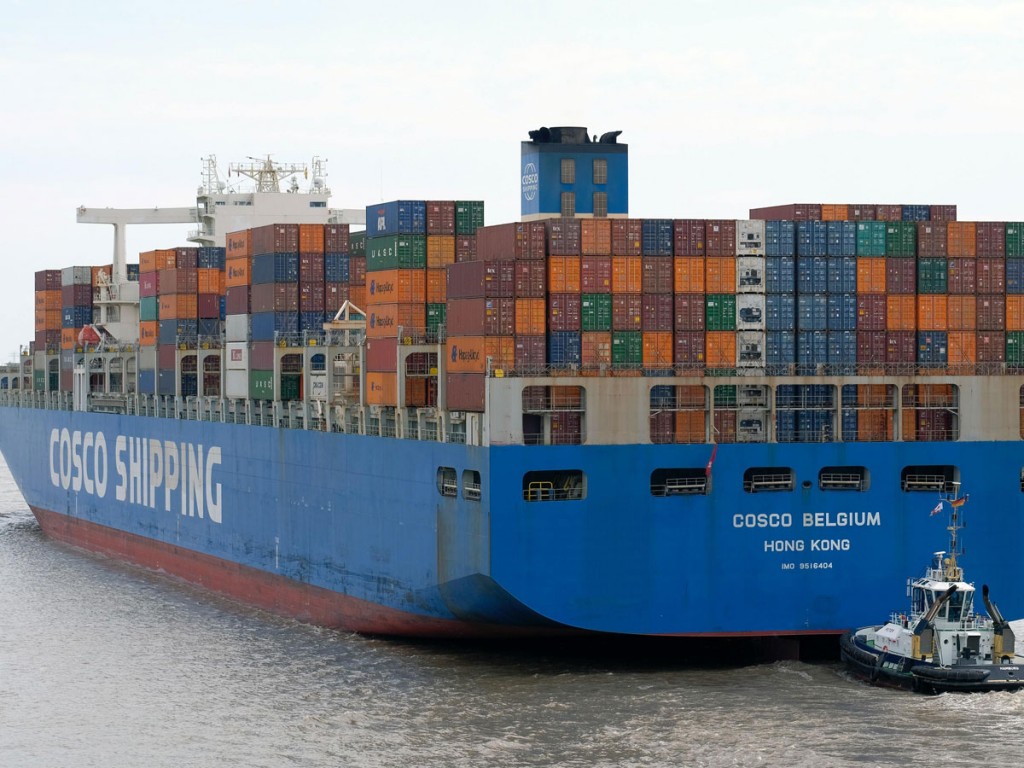
MSC and COSCO will be the growth leaders in container shipping as other carriers such as Maersk focus more on logistics, according to noted global container shipping analyst Lars Jensen, principal at Vespucci Maritime.
Jensen observed, “MSC is going to grow phenomenally and so is COSCO. Maersk and Yang Ming are not going to grow much at all according to the (new shipbuilding) order books. This means that some carriers are going to be very aggressive in growth and they will need volume for these new vessels. The others are not into growth at all — they want to sell logistics products or increase their unit profitability. This is going to ramp up the pressure between the carriers.”
However, he noted that “Market rumors from shipyards report that deliveries are being postponed. We are coming out of the pandemic period into a cyclical downturn.”

Changes In Ocean Carrier Alliances
In terms of the orders for new ships by the global alliance carriers for 2023 and 2024, there are substantial differences between the leading carriers.
In MSC’s case, the breakup in the 2M Alliance between MSC and Maersk means “MSC is aiming to go it alone and they can succeed in doing this…. The two parties’ interests are no longer aligned.”
While for Maersk, “Maersk on the other hand is indicating that they want to go it alone, but this is not feasible and they will in the short-term pursue ad-hoc slot swaps and slot charters and in the medium-term, engage in a relation with another carrier … The boys in blue in Copenhagen (Maersk headquarters) will go to great lengths not to call this an alliance. They will call it something else.”
And Jensen believes the Ocean Alliance is also likely to announce a break-up during 2023, opening the market for a full reconfiguration for all the carriers: “The reason is that the carriers are diverging onto separate paths.”
The Ocean Alliance includes: OOCL, COSCO, CMA/CGM, and Evergreen. Even THE Alliance, according to Jensen could also face a break-up in the near future: “The breakup of the other alliances is going to put pressure on THE Alliance with the partners asking, ‘Who do we want to be allied with after the break-up of the other alliances?’” THE Alliance includes Hapag-Lloyd, ONE, HMM and Yang Ming.

Decarbonization and Box Carriers
Decarbonization “is going on at a gathering pace. We are seeing increasing orders for ships with methanol as the fuel. However, the decarbonization of ships will take a long time and large-scale decarbonization will not be achieved until the 2040s. Overall, from an environmental perspective, this is a positive development. But there are some key challenges in the immediate horizon.”
The major challenge, Jensen says is that: “Realistically, there will not be a uniform solution” and this is because zero-emission calculations will vary as ocean carriers will have their own emissions calculators, as will logistics companies and multiple 3rd parties will have “neutral” calculators.
Jensen also anticipates digital systems on ships will become more common in the coming years: The Internet-of-things (IoT) trackers on all containers “will be possible, allowing for increased safety for transporting cargo.”
Electronic bills of lading “will allow for faster, more efficient and secure transactions as well as being easier to make corrections for errors.”
Digital systems would allow for increased real-time situational awareness in relation to the supply chain.
Competitions between carriers will increasingly rely on their crews being equipped with the tools to handle any situation.
Regulatory Impact
Jensen said that in terms of the European Union anti-trust exemption, there is a large element of political pressure to ‘do something:’ “There will be an increased aspect of protectionism in regard to the supply chains, under the guise of national security.”
Jensen believes: “The market is now past the pandemic’s effects and is back to normal, though “normal” in terms of emerging into a downcycle. Carriers are re-grouping and ships powered by renewable fuels and digital systems are increasing in numbers.”

